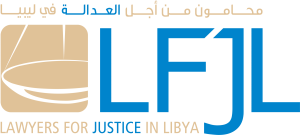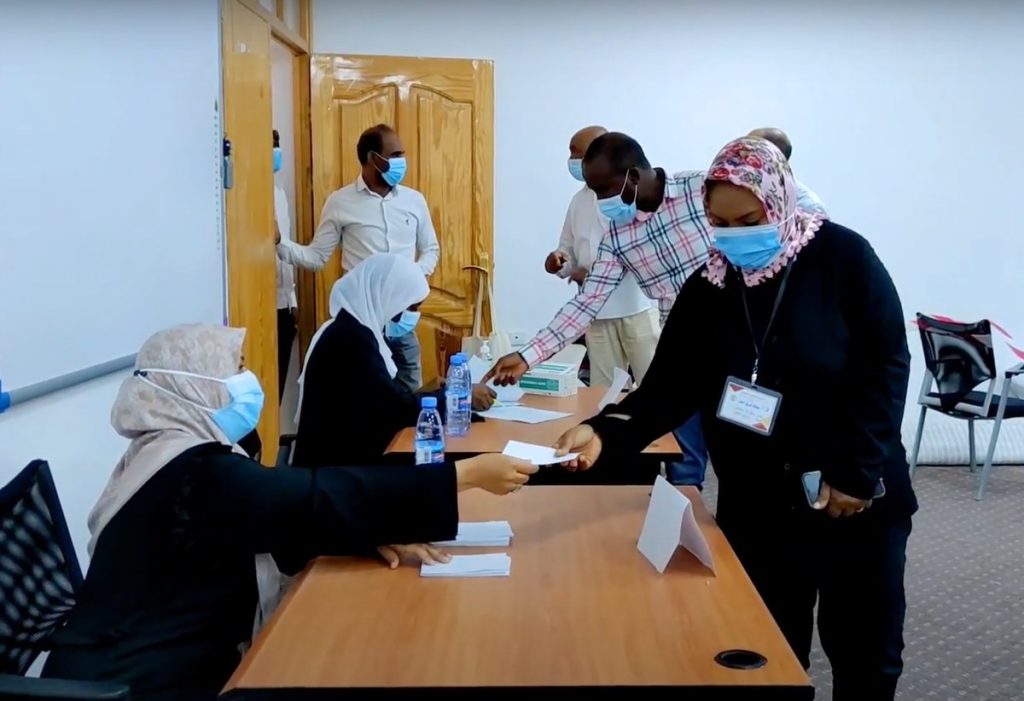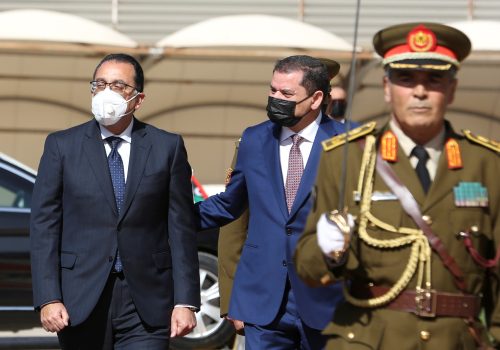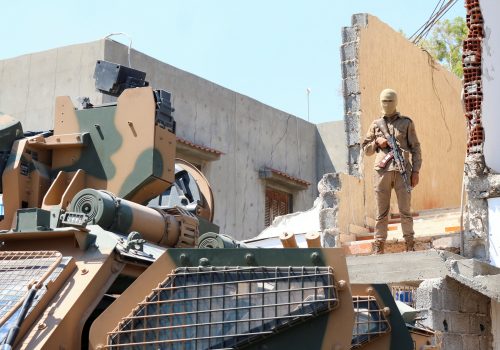Twelve years after the Libyan uprising, we are at a crucial point on Libya’s road to democracy. Now more than ever, it is important that civil society is at the heart of the approaching electoral process and future governance.
Democracy is more than the registration of voters, a list of candidates, and a ballot box. Democracy is what happens around those elements: the ability of citizens to associate freely, including to form political parties; the ability to question candidates and hold them to account, and to freely express views without fear of reprisal or sanction; and the ability of all citizens of legal age to take part, regardless of gender, location, and political affiliation. Democratization is more than anything a political process whose success relies on the buy-in of society.
A process that does not guarantee fundamental rights and the rule of law will only remain a superficial procedure that provides photo opportunities and opportunistic congratulatory statements.
In Libya, this facade of democracy is used to signal Libya’s readiness for elections. In reality, the international community’s current formula for Libya is failing, not only because it prioritizes expediency over meaningful transformation, but also because it focuses on reconciling Libya’s corrupt and illegitimate political elite rather than empowering its citizens.
This empty electoral vision will not foster a transition to a stable and peaceful Libyan state.
Libyan civil society urgently needs the space to operate safely and freely in Libya. Instead, Libya’s political elite consistently and systematically continues to shrink the space for civil discourse, and to target activists legislatively, physically, and institutionally. Libyan activists, journalists, and public figures have been abducted, tortured, and disappeared, and face brutal security apparatuses reintroduced from the Gaddhafi regime.
To give Libyan civil society a meaningful role in Libya’s transition to democracy, the international community must hold Libya’s political elite accountable for its crackdown on civil society. It must make the participation of the elite in any new process conditional on its commitment to repeal restrictions on civil society and allow the space for citizens to operate freely. Fundamentally, it must ensure that the framework of any new process is designed in consultation with Libya’s civil society and invites citizens’ contributions.
Failure to do so will not only birth another empty political process but will further enshrine a culture of impunity for human rights violations and violence—bringing more harm to the Libyan people.
Karim Mezran is director of the North Africa Initiative and resident senior fellow with the Rafik Hariri Center and Middle East programs at the Atlantic Council, focusing on the processes of change in North Africa.
Elham Saudi is cofounder and director of Lawyers for Justice in Libya, a leading organization working toward a Libya that embodies the values and principles of human rights and the rule of law, and a society committed to justice.
In partnership with

Further reading
Wed, Feb 1, 2023
Libya’s political impasse and the $6 billion question
MENASource By Alia Brahimi
On January 5, after months of talks brokered in Egypt, Libya’s rival legislative bodies finally agreed to begin discussions to develop the constitutional basis for elections.
Fri, Nov 18, 2022
The EU, NATO and the Libya crisis: Scaling ambitions down?
Report By
In March 2011, a coalition of countries under the United Nations (UN) umbrella led militarily by NATO launched an air campaign in support of a series of revolts against the regime of Muammar al-Qaddafi in Libya, ostensibly to stop Qaddafi’s reprisals on civilians.
Tue, Nov 15, 2022
A moment of opportunity: Can the UN’s new special representative for Libya break the country’s cycle of devolution?
MENASource By Emadeddin Badi
After two months into the job, Abdoulaye Bathily may be quickly realizing that Libya’s war never abated, and that it is now simply fought by other means in the halls of the United Nations and corridors of foreign capitals.
Image: USAID



